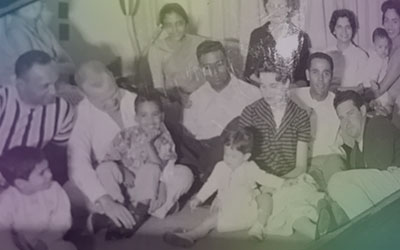
Like and dislike don’t matter nearly as much as shared outcomes.
Many human-centered organizations develop a habit that diminishes outcomes and contributes to burnout, even though the habit is born from a beautiful intention: treasuring individual perspectives and valuing each person’s ideas.
What’s the habit? We ask people if they like or dislike things, and say whether or not we do, even if like/dislike isn’t an especially meaningful or relevant metric.
Consider “How did you like the meeting?”
Work meetings are not entertainment. They are a collaborative venue to create outcomes. When we ask questions in like/dislike terms, we emphasize individual preferences rather than participation in shared outcomes. Part of the appeal of a like/dislike frame is its simplicity: It’s easy for each of us to talk about what we love or hate. Talking about how to make whatever is happening work for the outcome we want, however, is harder.
How can we begin to shift out of the like/dislike habit? We can ask ourselves, “Why am I asking this question?” If we want to make sure another person feels like they matter, we don’t need to use meeting preferences in order to do that. Being clearer on our reasons for asking like/dislike questions will clarify our questions over time.
Leaders often say things like, “I wish we’d all just focus on the work rather than on our feelings,” yet ask questions that re-center people on their feelings. And, framing conversations in like/dislike terms can teach people to please a leader’s preferences, rather than tell them what they really need to hear. Oops. Instead of “How did you like the meeting?” shift out of feelings and toward outcomes with questions like:
- What happened in the meeting?
- What did you notice in the meeting?
- What happens next?
- What is one thing you’ll focus on after the meeting?
It’s not just like/dislike questions that emphasize personal preferences when we don’t mean to. We also judge things ourselves and ask questions that cause others to evaluate future experiences in like/dislike terms. Leaders in particular set up high expectations that eclipse shared ownership in outcomes, and promise far more than any individual leader can deliver. When we think we are motivating people, we may also be distorting what matters most.
Here’s an example: “You are absolutely going to love this speaker. He changed my life. This company wouldn’t even exist if I hadn’t gone to a retreat he ran.”
This high praise sets up expectations that could result in a lackluster, opposite experience for the attendee at a time when their participation is key, like at an offsite. Instead, give facts and a realistic expectations. Rather than set up a life-changing-or-not lens, set up action and accountability with language like, “The company is investing in this event for two reasons. You have told us you want learning on paying attention, and you want to spend time connecting with other team members. We will only get what we put into this, so let’s meet afterwards to share one thing we each got from the event.”
This is not word policing, so much as it is speaking with an outcome mindset. We can focus most of our energy on our outcomes while still honoring each person’s humanity. When we grade things or ask questions that focus people solely on their own preferences, we shift away from shared responsibility for shared outcomes. When we oversell something, we create expectations that may not exist (or need to).
The upshot is that folks end up spending energy wanting things the way they want them, rather than actively working toward the best outcome. This contributes to burnout because, when we focus on our own preferences to the exclusion of all else, we can’t help but become victims to a (perceived) shoddy design or environment. We judge, blame, and condemn rather than use, improve, and influence.
If an organization has hired well, we will probably loathe some meetings. Why? Because what is happening there is not primarily for us. It exists to achieve outcomes, not satisfy our personal preferences.
Notice and practice the following to shift out of like/dislike and toward shared outcomes, both in thinking and in language:
- Instead of sentences that center on what you like or do not like, such as “I don’t like that font,” focus on outcomes like “A sans-serif font might be easier for this multitasking audience to read.”
- Give actionable detail like, “Let’s each share one action we’ll take as a result of this meeting.”
- Ask questions that move people toward outcomes instead of preferences, such as “Did the retreat provide strategies for focusing and paying attention? If yes, which one are you most likely to implement, and why?”
- As a leader, do not message promises like “You’ll never work the same way again.” Give realistic facts and outcomes instead: “The Pomodoro method helps some people focus. Tell me what you think after you’ve tried it a few times.”
- Value and appreciate specific people often. Appreciation need not occur in the context of like/dislike of specific things. Try something like, “You really knocked it out of the park with the client. Your answers to technical questions are a gift and make us all look good. Thanks.” You don’t even need a meeting to do it.


